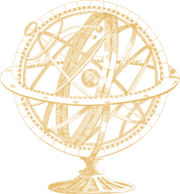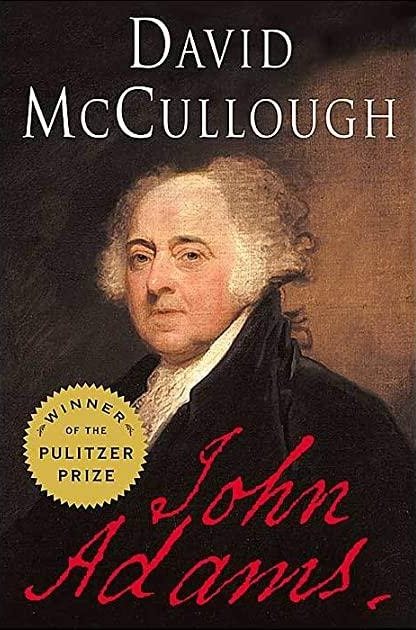“Popularity was never my mistress, nor was I ever, or shall I ever be a popular man. But one thing I know, a man must be sensible of the errors of the people, and upon his guard against them, and must run the risk of their displeasure sometimes, or he will never do them any good in the long run.”
John Adams
We got the ball rolling. Reading a book about George Washington turned out to be even more satisfying than I had anticipated. Many myths were debunked, many facts revealed and let’s just say if I get a sore throat after a ride in the countryside, don’t let GW’s doctors at me. I’ll be just fine without all the bleeding and cupping.
To keep the journey moving along, I opened a book I’d had my sights on for years, David McCullough’s John Adams. I have read several other McCullough books in the past and plan to read more in the future (looking at you, Truman). I find his writing as enlightening and enjoyable as it is thorough and exhaustive. This biography did not disappoint. I wonder if the mini-series is just as good.
At a glance, John Adams wasn’t a particularly good president. The notoriously thin-skinned Massachusetts lawyer passed The Alien & Sedition Acts, which remain a stain on his legislative legacy. He kept Washington’s Cabinet, which turned out to be a major misstep. He was often too vain, stubborn and argumentative to schmooze like the savvier members of the political class. He became President having never held an administrative position, not doing much in eight years as VP, never serving in the military, campaigning for a single vote or choosing a side in the newly forming political parties. As Benjamin Franklin put it, “He means well for his country, is always an honest man, often a wise one, but sometimes, and in some things, absolutely out of his senses.”
After reading this biography, I found a richer picture than the one often hung in the great halls of history. Consider how close be came to winning a second term in office. During his term there were no major scandals or corruption. He chose not to go to war with France when it would have been popular, but costly and wrong. (“I desire no other inscription over my gravestone than ‘Here lies John Adams, who took upon himself the responsibility of peace with France in the year 1800.'”) Despite a damning pamphlet from Alexander Hamilton right before the 1800 election, the backlash over the Alien & Sedition Acts, unpopular taxes, betrayals by his Cabinet, a Jefferson-funded literary assassin crushing him daily in the papers and his de facto Federalist Party breaking apart, he still almost won! If just 250 votes shifted to his column in New York City, he would have won a second term. If the controversial peace commission he sent to France had returned with their successful treaty three weeks earlier, he probably would have won. If the three-fifths rule for counting the slave population was not in place, which gave disproportionate additional votes to the South, he would have won.
John Adams is one of the most consequential people of all the Founding Generation, yet he has no monument in the nation’s capital. He was a delegate to the first two Continental Congresses. He was a Harvard graduate when it was just four brick buildings and a faculty of seven. He wrote some of the most widely circulated dissertations on modern government and studied writings from Demosthenes to Cicero to the current procedures in British Parliament. He was on the committee with Thomas Jefferson to craft the Declaration of Independence. He was the primary author of the Massachusetts Constitution, still the oldest functioning written Constitution in the world(!). Last but not least, he was a selfless public servant. Adams spent most of his years from 1777 to 1801 progressing the ideals of the new nation as envoy to France, the first Minister to the Netherlands, the first Minister to the United Kingdom, the first Vice President and successor to George Washington himself.
All those things are well and good, but one event in John Adams public life jumped out at me like a shot from a redcoat musket. Adams, the astute lawyer, the Boston-area native, the fervent patriot, argued the case in the aftermath trial of the Boston Massacre….. defending the British soldiers. Wait.. WHAT!?! I had to reread the chapter to make sure I read it right. I’ll set the scene.
On March 5, 1770, some rabble rousers started taunting a single British sentry guard in front of the Boston Custom House. Eight other guards and their captain came to reinforce him but were no match for the mostly drunken mob that started throwing snowballs, chunks of ice, oyster shells and stones at the redcoats. Amidst the enclosing chaos, the soldiers fired, killing 5 people. All the British soldiers were arrested on murder charges and lawyer after lawyer passed on defending “the enemy.” Into the breach stepped the robust, portly frame of John Adams. He stood firm in his belief that no man in a free country should be denied the right to counsel and a fair trial. Despite the potential damage to his reputation, he prepared the case in earnest and produced arguably the best quote of the whole book: “Facts are stubborn things and whatever may be our wishes, our inclinations, or the dictums of our passions, they cannot alter the state of facts and evidence.”
At trial’s end, the captain was found not guilty, six of the eight soldiers were acquitted and the remaining two had their thumbs branded after charges of manslaughter. Adams called his own defense of the soldiers, “one of the most gallant, generous manly and disinterested actions of my whole life, and one of the best pieces of service I ever rendered my country.”
John Adams is my guy. He was pompous and he was proud, but he knew his faults and knew unequivocally who he was and what he stood for. He believed in due process and good government. He preferred peace to war and order to chaos. He never owned a slave or carried a debt, detesting the idea of both. He may have been a lousy politician, but more often than not, he was the smartest guy in the room. And he was in some very impressive rooms.
Trivia
- Library of Congress – approved legislation for $5,900 to “purchase such books as may be necessary”. He founded the LOC!
- Derisively called “His Rotundity”
- Died on the 4th of July – the 50th Anniversary of the Declaration of Independence and the same day as Thomas Jefferson. Yes, seriously.
- Signed the Declaration of Independence along with Jefferson, making them the two signers to become President
- Didn’t sign the Constitution though. He was abroad as minister to Great Britain.
- First president to live in the White House
- His 1800 campaign vs Thomas Jefferson might be the nastiest in history (yes, including modern times)
- Cast 31 tie-breaking votes in the Senate, still a record among VPs
- Created the Department of the Navy and the Marine Corps
Follow-up Reading
- My Dearest Friend: Letters of Abigail and John Adams
- 1776 by David McCullough
- The Creation of the American Republic, 1776-1787 and Friends Divided by Gordon S. Wood

